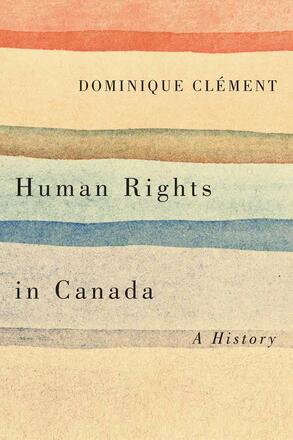
Human Rights in Canada
A History
Description
Is there such a thing as a Canadian rights culture? There are virtually no limits to how people employ rights-talk today, from the most profound violations of individual freedom to the mundane realities of daily life. This book is both a history of human rights in Canada and an attempt to better understand our rights culture.
Awards
- Long-listed, Foreword INDIE Book Awards 2016
Reviews
Dominique Clément takes us on an invaluable journey through history, law, politics and society, examining how those forces have embedded human rights at the heart of what it is to be Canadian. From the political rebellions of the 1830s, through to highly charged social change in the 1970s and ground-breaking Supreme Court rulings in 2015, there is hardly a crackdown, social movement or court ruling of human rights significance that is not woven into this remarkable account. He stresses throughout that Canada’s rights culture has been a continuing evolution, reflected as much in ongoing social dialogue as it is in laws that have been passed. Understanding our unique national rights culture helps illuminate the past. It also importantly frames the human rights challenges and responsibilities that lie ahead.
- Alex Neve, Secretary General, Amnesty International Canada (English Canada), Alex Neve, Amnesty International Canada (English Canada)
In remarkably lucid prose, Dominique Clément reveals the evolution of Canada’s rights culture from British conventions to post-Charter innovations, from civil liberties to human rights, from mere equality before the law to ‘the most sophisticated human rights legal regime in the world.’ Along the way, he reminds us that rights don’t exist in the abstract, that they evolve within a culture as that culture evolves, that the rights revolution is far from complete, especially for Indigenous Canadians, and that in the end, ‘human rights are, and always should be, a dialogue.’ An invaluable book.”
- John Ibbitson, Writer at Large, <i>The Globe and Mail</i>, John Ibbitson